Delicious Tomato Pasta Sauce Recipes – No Meat, All Flavor! Introduction: Tomato pasta sauce is a versatile and widely loved staple in many households. For those looking for a vegetarian or plant-based option, a meatless tomato pasta sauce could be the perfect choice. Packed with flavor, nutrients, and a variety of ingredients, these sauces are not only delicious but also easy to make. In this summary, we will explore different recipes for tomato pasta sauces that are meat-free, offering a tantalizing array of flavors and textures. 1. Classic Marinara Sauce: Marinara sauce is a classic tomato-based sauce, known for its simplicity and vibrant flavors. To make a vegetarian version, start by sautéing onions, garlic, and dried herbs in olive oil. Once the onions are translucent, add crushed tomatoes, tomato paste, a pinch of sugar, and salt. Simmer the sauce for about 30 minutes to allow the flavors to meld together, and then serve over your favorite pasta. This sauce pairs well with spaghetti, linguine, and penne. 2. Roasted Red Pepper Sauce: Roasted red peppers add a smoky and sweet flavor profile to tomato pasta sauce. To prepare this sauce, roast red bell peppers until the skin is charred. After peeling off the skin, blend the roasted peppers with diced tomatoes, garlic, olive oil, and seasonings such as basil and oregano. If you prefer a creamier sauce, you can also add a splash of heavy cream or coconut milk. Blend until smooth and heat the sauce in a pan. Serve over your choice of pasta, and garnish with fresh basil leaves and grated Parmesan cheese. 3. Arrabbiata Sauce: If you enjoy some heat in your pasta sauce, arrabbiata sauce is the perfect choice. To make this spicy sauce, start by sautéing garlic and red pepper flakes in olive oil. Add crushed tomatoes, salt, sugar, and dried herbs such as basil and oregano. Let the sauce simmer for about 20 minutes to allow the flavors to blend. This fiery sauce pairs well with penne pasta and is equally delicious with or without grated Parmesan cheese.

tomato paste
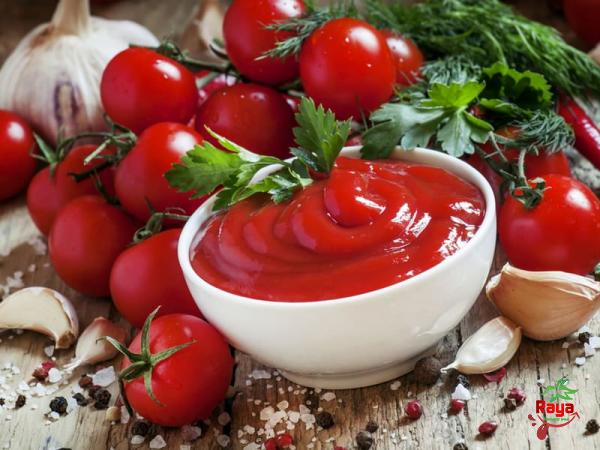 4. Creamy Tomato and Mushroom Sauce: Mushrooms add a delightful earthy and meaty flavor to tomato pasta sauce, making it a great option for those looking for a more substantial dish. Begin by sautéing mushrooms in olive oil until they release their moisture. Add diced onions and garlic, and continue to cook until the onions become translucent. Incorporate crushed tomatoes, tomato paste, dried basil, thyme, and a touch of heavy cream or coconut milk. Simmer the sauce for about 20 minutes and serve over pasta of your choice. The creaminess of this sauce pairs well with fettuccine or farfalle pasta. 5. Tomato and Eggplant Sauce: This sauce combines the juicy flavors of ripe tomatoes with the unique taste and texture of eggplant. Start by roasting the eggplant until it becomes tender and slightly charred. Once cooled, chop the eggplant into small pieces. In a saucepan, sauté onions, garlic, and diced tomatoes in olive oil. Add the chopped eggplant, diced tomatoes, and tomato paste. Season with basil, oregano, salt, and pepper. Simmer the sauce for 20-30 minutes, allowing the flavors to blend together. This hearty sauce pairs well with spaghetti or rigatoni pasta. Conclusion: A meatless tomato pasta sauce can be just as delicious and flavorful as its meat-based counterparts. The versatility of tomato sauce allows you to experiment with various ingredients and flavors, accommodating a range of taste preferences and dietary choices. By using fresh and quality ingredients, such as ripe tomatoes, aromatic herbs, and fragrant spices, these meatless sauces can turn a simple plate of pasta into a delightful and satisfying meal. Whether you prefer a classic marinara sauce or an adventurous roasted red pepper sauce, these recipes are sure to please your palate while providing a healthier and lighter alternative. So, grab your pasta and get creative with these meatless tomato pasta sauce recipes!I. The Growing Demand for Meatless Tomato Pasta Sauce As awareness about the environmental and health impacts of meat consumption continues to grow, more people are adopting vegetarian, vegan, or flexitarian diets. This shift has led to an increased demand for meatless alternatives in various food categories, including tomato pasta sauce. Apart from catering to dietary preferences, meatless tomato pasta sauce also appeals to those seeking healthier options without compromising on taste. Therefore, it presents a lucrative opportunity for businesses and food manufacturers to tap into this growing market and cater to the needs of a diverse customer base.
4. Creamy Tomato and Mushroom Sauce: Mushrooms add a delightful earthy and meaty flavor to tomato pasta sauce, making it a great option for those looking for a more substantial dish. Begin by sautéing mushrooms in olive oil until they release their moisture. Add diced onions and garlic, and continue to cook until the onions become translucent. Incorporate crushed tomatoes, tomato paste, dried basil, thyme, and a touch of heavy cream or coconut milk. Simmer the sauce for about 20 minutes and serve over pasta of your choice. The creaminess of this sauce pairs well with fettuccine or farfalle pasta. 5. Tomato and Eggplant Sauce: This sauce combines the juicy flavors of ripe tomatoes with the unique taste and texture of eggplant. Start by roasting the eggplant until it becomes tender and slightly charred. Once cooled, chop the eggplant into small pieces. In a saucepan, sauté onions, garlic, and diced tomatoes in olive oil. Add the chopped eggplant, diced tomatoes, and tomato paste. Season with basil, oregano, salt, and pepper. Simmer the sauce for 20-30 minutes, allowing the flavors to blend together. This hearty sauce pairs well with spaghetti or rigatoni pasta. Conclusion: A meatless tomato pasta sauce can be just as delicious and flavorful as its meat-based counterparts. The versatility of tomato sauce allows you to experiment with various ingredients and flavors, accommodating a range of taste preferences and dietary choices. By using fresh and quality ingredients, such as ripe tomatoes, aromatic herbs, and fragrant spices, these meatless sauces can turn a simple plate of pasta into a delightful and satisfying meal. Whether you prefer a classic marinara sauce or an adventurous roasted red pepper sauce, these recipes are sure to please your palate while providing a healthier and lighter alternative. So, grab your pasta and get creative with these meatless tomato pasta sauce recipes!I. The Growing Demand for Meatless Tomato Pasta Sauce As awareness about the environmental and health impacts of meat consumption continues to grow, more people are adopting vegetarian, vegan, or flexitarian diets. This shift has led to an increased demand for meatless alternatives in various food categories, including tomato pasta sauce. Apart from catering to dietary preferences, meatless tomato pasta sauce also appeals to those seeking healthier options without compromising on taste. Therefore, it presents a lucrative opportunity for businesses and food manufacturers to tap into this growing market and cater to the needs of a diverse customer base.
Specifications of tomato paste
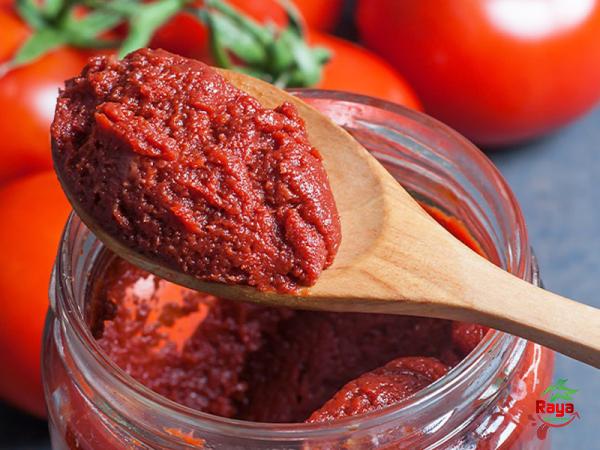 II. Market Analysis and Opportunities for Meatless Tomato Pasta Sauce The meatless market has experienced significant growth in recent years, driven by factors such as rising health consciousness, animal welfare concerns, and sustainability considerations. According to a report by MarketsandMarkets, the global meat substitute market is projected to reach $7.5 billion by 2022, with a compound annual growth rate of 6.8% from 2017 to 2022. This presents a promising opportunity for businesses looking to enter or expand in the meatless tomato pasta sauce market. III. Product Development and Innovation To stand out in the competitive market, businesses should focus on product development and innovation. One approach is to experiment with different ingredients and flavors to create unique and enticing meatless tomato pasta sauce options. For example, incorporating ingredients like roasted vegetables, plant-based protein alternatives, or exotic herbs and spices can add depth and complexity to the sauce. Additionally, considering specialized dietary needs, such as gluten-free, dairy-free, or low-sodium options, can widen the customer base and cater to specific preferences. IV. Sourcing High-Quality Ingredients Using high-quality ingredients is essential to creating a flavorful and nutritious meatless tomato pasta sauce. Fresh, ripe tomatoes are a vital component, as they form the base of the sauce. Businesses should prioritize sourcing locally or seasonally available tomatoes to ensure superior taste and freshness. Similarly, using organic or pesticide-free ingredients can appeal to health-conscious consumers who prioritize clean eating. Highlighting these sourcing practices can also help position the product as sustainable and environmentally friendly. V. Packaging and Labeling Packaging plays a crucial role in attracting consumers and conveying the quality and value of the product. Opt for sustainable and eco-friendly packaging options that align with the core values of the brand. Clear labeling is also important to attract customers who specifically seek meatless options. Clearly indicating that the product is free from meat, poultry, or any other animal products is key to ensuring that consumers can quickly identify the meatless tomato pasta sauce as suitable for their dietary needs. VI. Partnering with Retailers and Distributors Collaborating with retailers and distributors can help businesses expand their reach and make their meatless tomato pasta sauce readily available to consumers. Partnering with supermarkets, health food stores, and even online marketplaces can increase brand visibility and accessibility. Additionally, considering collaborations with popular restaurants or foodservice providers can lead to product placement and create opportunities for menu inclusion, further expanding market presence.
II. Market Analysis and Opportunities for Meatless Tomato Pasta Sauce The meatless market has experienced significant growth in recent years, driven by factors such as rising health consciousness, animal welfare concerns, and sustainability considerations. According to a report by MarketsandMarkets, the global meat substitute market is projected to reach $7.5 billion by 2022, with a compound annual growth rate of 6.8% from 2017 to 2022. This presents a promising opportunity for businesses looking to enter or expand in the meatless tomato pasta sauce market. III. Product Development and Innovation To stand out in the competitive market, businesses should focus on product development and innovation. One approach is to experiment with different ingredients and flavors to create unique and enticing meatless tomato pasta sauce options. For example, incorporating ingredients like roasted vegetables, plant-based protein alternatives, or exotic herbs and spices can add depth and complexity to the sauce. Additionally, considering specialized dietary needs, such as gluten-free, dairy-free, or low-sodium options, can widen the customer base and cater to specific preferences. IV. Sourcing High-Quality Ingredients Using high-quality ingredients is essential to creating a flavorful and nutritious meatless tomato pasta sauce. Fresh, ripe tomatoes are a vital component, as they form the base of the sauce. Businesses should prioritize sourcing locally or seasonally available tomatoes to ensure superior taste and freshness. Similarly, using organic or pesticide-free ingredients can appeal to health-conscious consumers who prioritize clean eating. Highlighting these sourcing practices can also help position the product as sustainable and environmentally friendly. V. Packaging and Labeling Packaging plays a crucial role in attracting consumers and conveying the quality and value of the product. Opt for sustainable and eco-friendly packaging options that align with the core values of the brand. Clear labeling is also important to attract customers who specifically seek meatless options. Clearly indicating that the product is free from meat, poultry, or any other animal products is key to ensuring that consumers can quickly identify the meatless tomato pasta sauce as suitable for their dietary needs. VI. Partnering with Retailers and Distributors Collaborating with retailers and distributors can help businesses expand their reach and make their meatless tomato pasta sauce readily available to consumers. Partnering with supermarkets, health food stores, and even online marketplaces can increase brand visibility and accessibility. Additionally, considering collaborations with popular restaurants or foodservice providers can lead to product placement and create opportunities for menu inclusion, further expanding market presence.
buy tomato paste
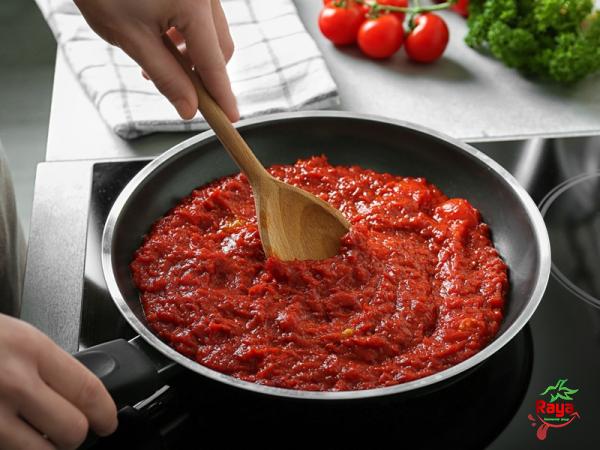 VII. Marketing and Promotions Effectively marketing the meatless tomato pasta sauce is crucial to generating awareness and driving sales. Utilize various marketing channels, including digital marketing, social media, food blogs, and cooking websites, to engage with target customers. Creating visually appealing and informative content, such as recipe videos, cooking tips, and product features, can help establish a connection with consumers and showcase the versatility and benefits of the meatless pasta sauce. Offering promotional deals, bundle discounts, or partnerships with influencers can also help create a buzz around the product and generate interest. VIII. Engaging with the Vegetarian and Vegan Community Engaging with the vegetarian and vegan community is essential for building brand loyalty and ensuring the long-term success of the meatless tomato pasta sauce. Actively participating in vegetarian and vegan events, sponsoring plant-based festivals, or supporting animal welfare organizations can position the brand as an advocate and trusted partner of the community. Additionally, seeking endorsements from renowned vegan or vegetarian personalities can enhance credibility and create a positive brand image. IX. Customer Feedback and Continuous Improvement Customer feedback plays a critical role in refining and improving the product. Encourage customers to share their experiences through online reviews, surveys, or social media platforms. Listen to their suggestions, concerns, and preferences to make necessary adjustments or introduce new flavors/variations to cater to evolving tastes. Demonstrating responsiveness and implementing customer-driven changes can build brand loyalty and strengthen the product’s position in the market. X. Sustainable Practices and Corporate Social Responsibility Incorporating sustainable practices and demonstrating corporate social responsibility can further differentiate the meatless tomato pasta sauce brand. Emphasize environmentally friendly initiatives, such as using renewable energy, reducing waste, or supporting local farmers and communities. Transparently communicate these efforts to consumers, as sustainability has become a significant factor in purchase decisions and can influence brand loyalty. Conclusion: The demand for meatless tomato pasta sauce is on the rise, fueled by the growing popularity of vegetarian, vegan, and flexitarian diets. Businesses have a tremendous opportunity to tap into this market by developing flavorful and innovative sauce options. By sourcing high-quality ingredients, implementing sustainable practices, and actively engaging with consumers, retailers, and the vegetarian/vegan community, businesses can position themselves as leaders in the meatless tomato pasta sauce industry. Through effective marketing and continuous improvement based on customer feedback, they can capture market share and cater to the evolving needs of a diverse customer base.
VII. Marketing and Promotions Effectively marketing the meatless tomato pasta sauce is crucial to generating awareness and driving sales. Utilize various marketing channels, including digital marketing, social media, food blogs, and cooking websites, to engage with target customers. Creating visually appealing and informative content, such as recipe videos, cooking tips, and product features, can help establish a connection with consumers and showcase the versatility and benefits of the meatless pasta sauce. Offering promotional deals, bundle discounts, or partnerships with influencers can also help create a buzz around the product and generate interest. VIII. Engaging with the Vegetarian and Vegan Community Engaging with the vegetarian and vegan community is essential for building brand loyalty and ensuring the long-term success of the meatless tomato pasta sauce. Actively participating in vegetarian and vegan events, sponsoring plant-based festivals, or supporting animal welfare organizations can position the brand as an advocate and trusted partner of the community. Additionally, seeking endorsements from renowned vegan or vegetarian personalities can enhance credibility and create a positive brand image. IX. Customer Feedback and Continuous Improvement Customer feedback plays a critical role in refining and improving the product. Encourage customers to share their experiences through online reviews, surveys, or social media platforms. Listen to their suggestions, concerns, and preferences to make necessary adjustments or introduce new flavors/variations to cater to evolving tastes. Demonstrating responsiveness and implementing customer-driven changes can build brand loyalty and strengthen the product’s position in the market. X. Sustainable Practices and Corporate Social Responsibility Incorporating sustainable practices and demonstrating corporate social responsibility can further differentiate the meatless tomato pasta sauce brand. Emphasize environmentally friendly initiatives, such as using renewable energy, reducing waste, or supporting local farmers and communities. Transparently communicate these efforts to consumers, as sustainability has become a significant factor in purchase decisions and can influence brand loyalty. Conclusion: The demand for meatless tomato pasta sauce is on the rise, fueled by the growing popularity of vegetarian, vegan, and flexitarian diets. Businesses have a tremendous opportunity to tap into this market by developing flavorful and innovative sauce options. By sourcing high-quality ingredients, implementing sustainable practices, and actively engaging with consumers, retailers, and the vegetarian/vegan community, businesses can position themselves as leaders in the meatless tomato pasta sauce industry. Through effective marketing and continuous improvement based on customer feedback, they can capture market share and cater to the evolving needs of a diverse customer base.

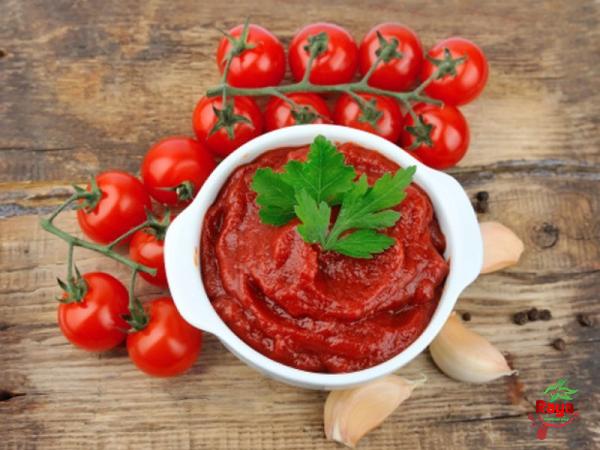
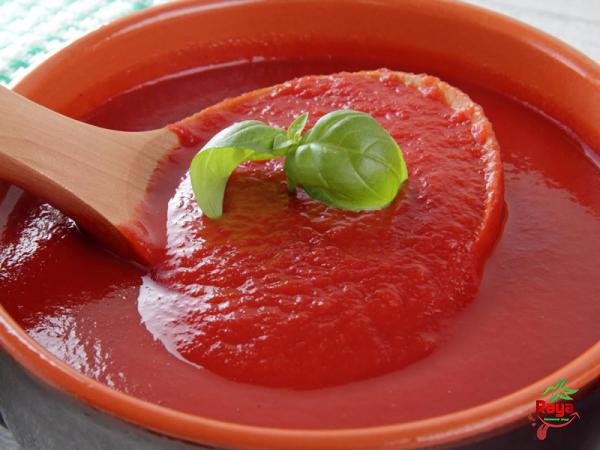


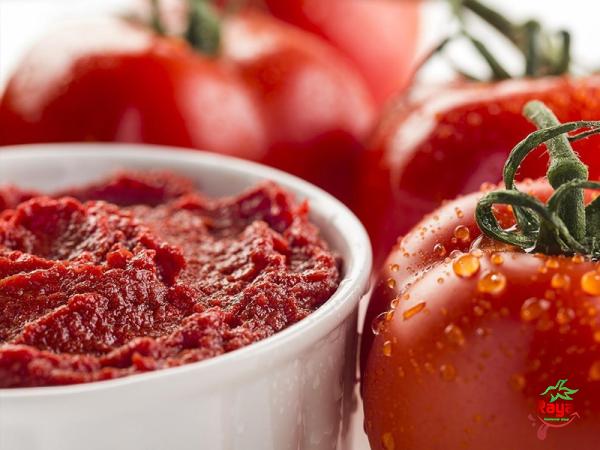



Your comment submitted.